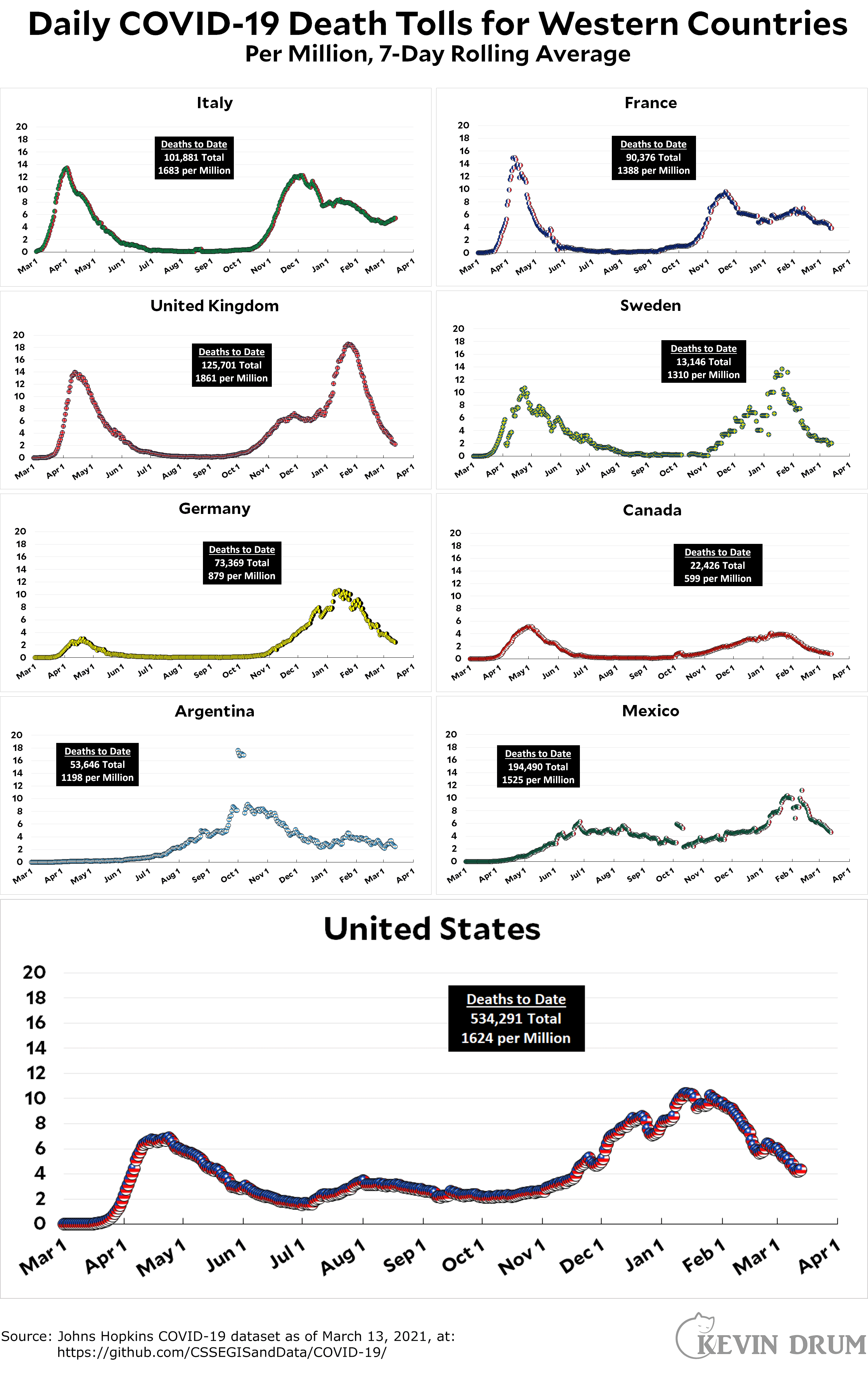I'm puzzled about something related to the AstraZeneca vaccine. Several European countries have put it on hold due to reports of blood clots in patients who have received it. If I have the numbers right, about 40 cases of blood clots have been reported out of the 17 million people who have gotten the AZ vaccine.
But COVID-19 itself is far more dangerous on the blood clot front. "Blood clots continue to wreak havoc for patients with severe COVID-19 infection," reported the University of Michigan Health Lab a few months ago, and that hasn't changed.
So let's do some arithmetic. The overall hospitalization rate for COVID-19 is about 100 per million per week, which means that of the 17 million who have received the AZ vaccine since January, something on the order of 17,000 would have been hospitalized if they hadn't been vaccinated. The incidence of blood clots in patients hospitalized for COVID-19, according to a recent study, is about 20%. This means that roughly 3,000 people out of those 17 million would have developed blood clots without the vaccine, simply because they would gotten a serious case of COVID-19.
So . . . 3,000 without the vaccine, 40 with the vaccine.¹ That seems like a no-brainer: keep inoculating people with the AZ vaccine until firm evidence of large-scale harm emerges.²
Unless, of course, I bollixed up my amateur risk-assessment arithmetic. If I did, what am I missing?
¹Also, AstraZeneca claims that 40 cases out of 17 million is about the same as it is for other vaccines. I can't verify that at the moment, but I wouldn't be surprised if it's true.
²The calculus might work out differently if you had plenty of alternate vaccine supplies, but I don't get the impression that's the case in Europe.






